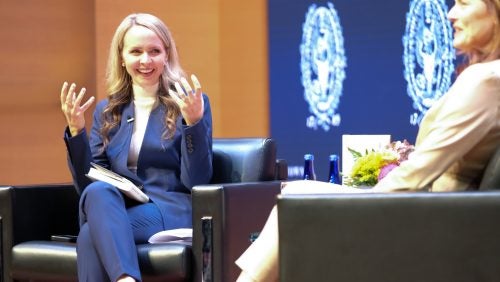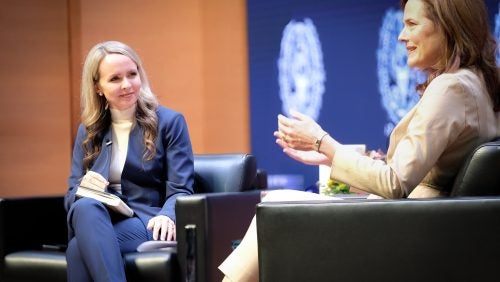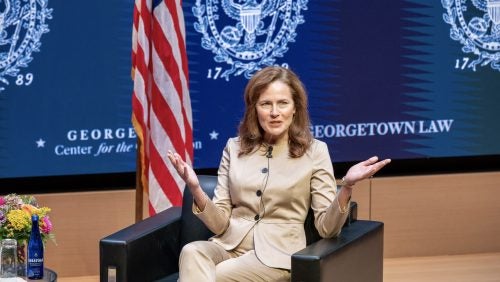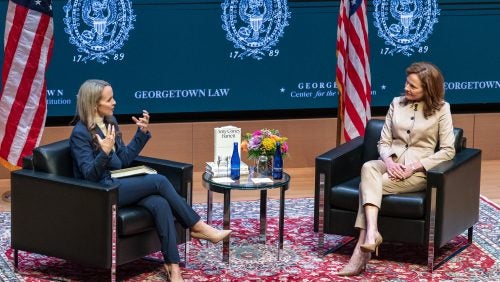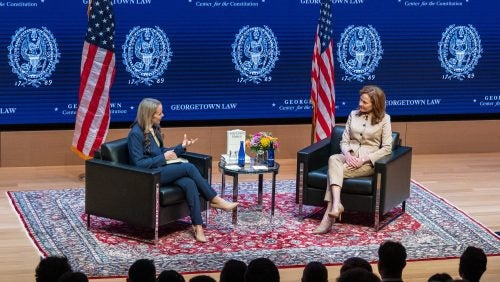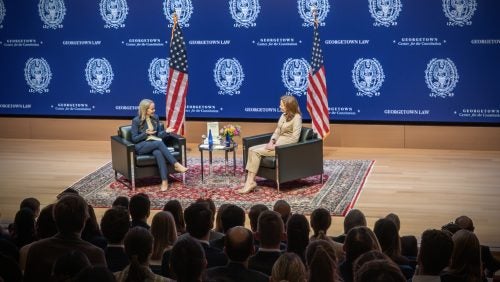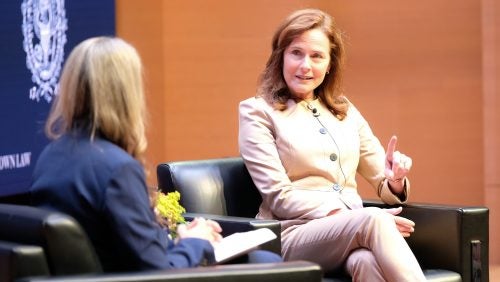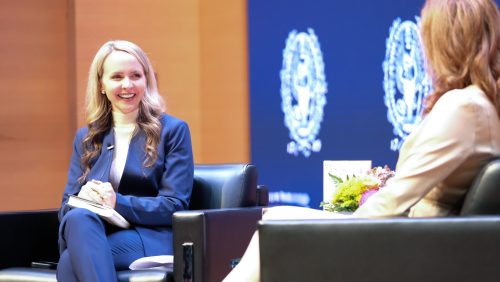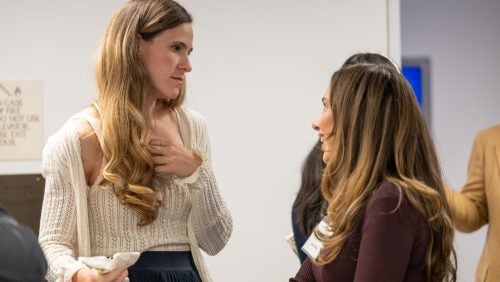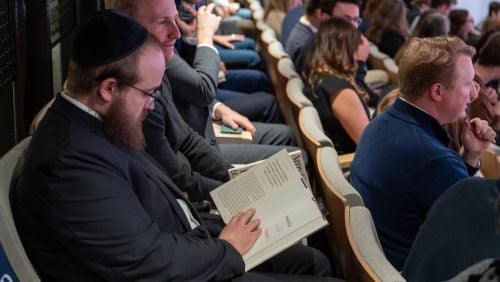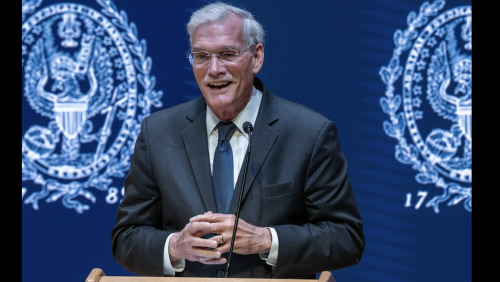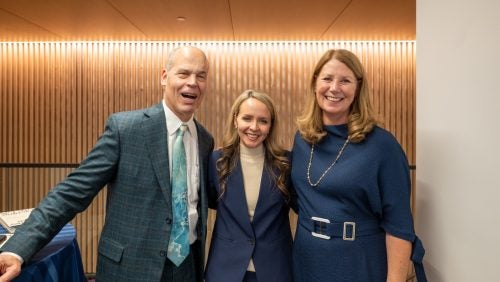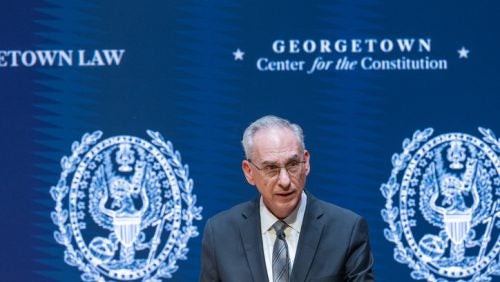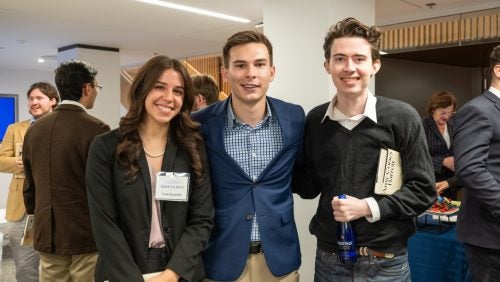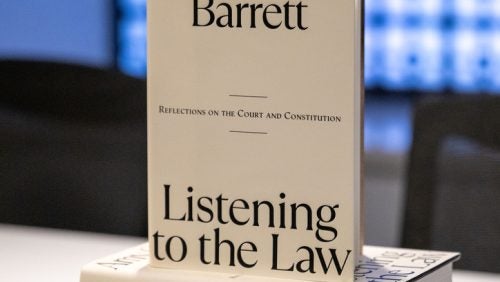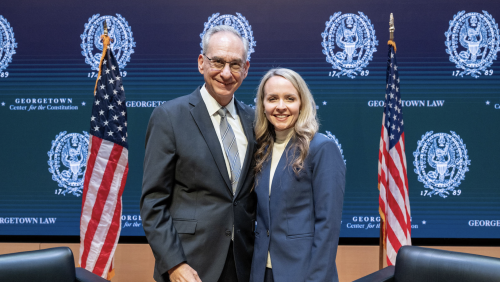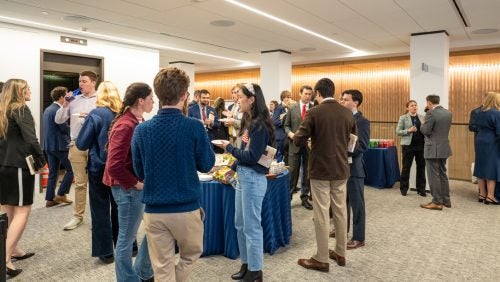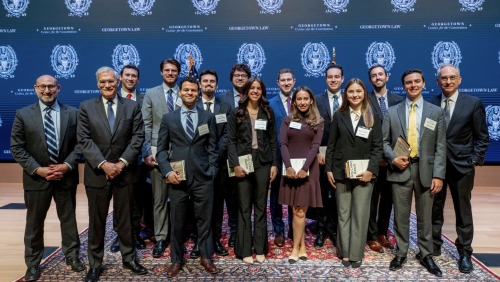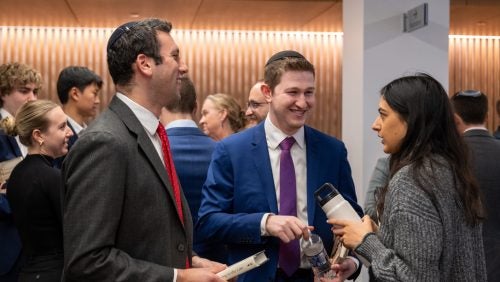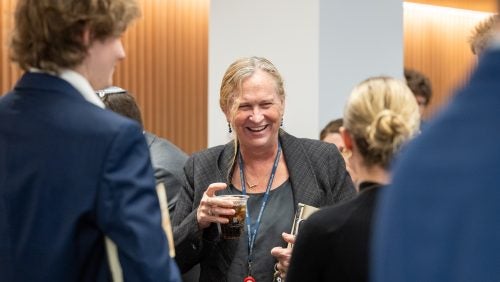Listening to the Law: A Conversation with Justice Amy Coney Barrett at Georgetown Law
The Georgetown Center for the Constitution was honored to host U.S. Supreme Court Justice Amy Coney Barrett for a conversation on her newly released book, Listening to the Law.
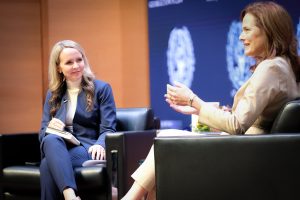 The event, held at Georgetown Law on October 28, 2025, drew a full audience of students, faculty, and supporters of the Center, all eager to hear Justice Barrett’s reflections on the work of the Supreme Court and the principles that guide her approach to judging. The discussion was moderated by the Center’s Faculty Co-Director, Professor Stephanie Barclay, whose thoughtful questions invited Justice Barrett to share candid and personal insights—ranging from her interactions with colleagues on the Court, to the Court’s evolving approach to the emergency docket, to the process of constitutional construction and crafting judicial doctrines to implement original meaning, to the differences between the “history and tradition” test and originalism.
The event, held at Georgetown Law on October 28, 2025, drew a full audience of students, faculty, and supporters of the Center, all eager to hear Justice Barrett’s reflections on the work of the Supreme Court and the principles that guide her approach to judging. The discussion was moderated by the Center’s Faculty Co-Director, Professor Stephanie Barclay, whose thoughtful questions invited Justice Barrett to share candid and personal insights—ranging from her interactions with colleagues on the Court, to the Court’s evolving approach to the emergency docket, to the process of constitutional construction and crafting judicial doctrines to implement original meaning, to the differences between the “history and tradition” test and originalism.
The Center extends its gratitude to Georgetown Law Interim Dean Josh Teitelbaum and Georgetown University Interim President Robert Groves for their invaluable support in making this extraordinary event possible. President Groves’s introductory remarks added a warm and meaningful dimension to the occasion.
Justice Barrett spoke with characteristic humility and sincerity, offering insights into how judges approach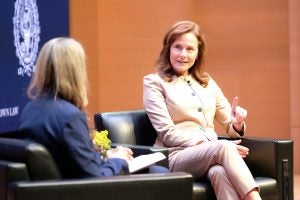 their duty to listen—both to the law itself and to the limits of their judicial role. Her remarks sparked thoughtful discussion among students and faculty alike, underscoring the importance of engaging directly with the ideas that shape our legal system.
their duty to listen—both to the law itself and to the limits of their judicial role. Her remarks sparked thoughtful discussion among students and faculty alike, underscoring the importance of engaging directly with the ideas that shape our legal system.
“Justice Barrett offered our students a masterclass in how to disagree well—showing that the Court’s frequent unanimous opinions arise from justices who listen earnestly to each other’s perspectives,” said Professor Stephanie Barclay. “Her personal examples of maintaining warm relationships with colleagues despite profound jurisprudential differences exemplifies the civil discourse we seek to foster at Georgetown Law.”
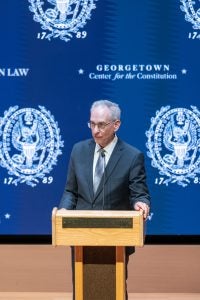
Professor Randy Barnett, Faculty Director of the Georgetown Center for the Constitution, emphasized the sophisticated nature of the dialogue, providing the following summary of the exchange: “It was a remarkably high level exchange on constitutional theory employing the interpretation-construction distinction to explain why so little of what the Court has to wrestle with concerns constitutional meaning; how, as a consequence, originalism does not resolve these matters; the level of generality problem for all constitutional methods; and the distinction between using history to ascertain original meaning and identifying a free-standing ‘history and tradition’ and then using the latter as a (contestable) means of resolving cases where original meaning alone cannot.”
The conversation exemplified the Center’s commitment to promoting substantive dialogue about the ideas that shape our legal system, and about the need for civil engagement on tough issues in our Republic.
Watch the Full Conversation on YouTube:

